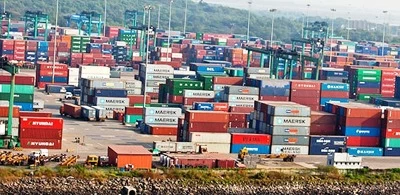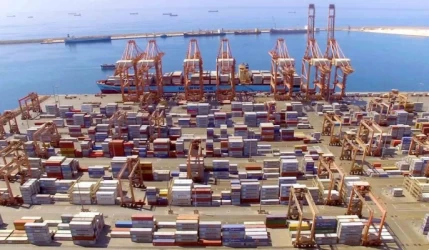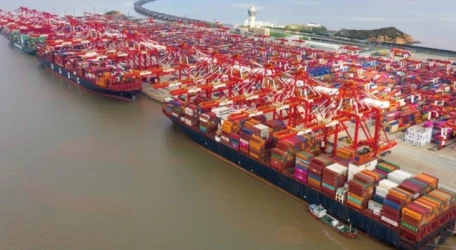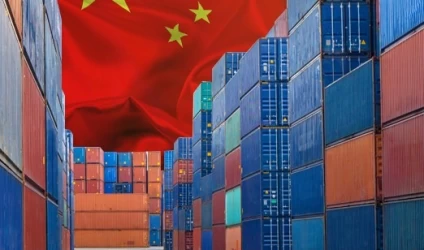Sea freight in the port of Genoa
The Port of Genoa, located in northwest Italy, is one of the largest and busiest ports in the Mediterranean. With a rich history dating back to ancient times, the port has grown into a significant hub for global maritime trade. Its strategic location along key shipping routes makes it a vital gateway for goods entering and leaving Europe. In this article, we will explore the importance of the Port of Genoa, its infrastructure, and its impact on the maritime transport industry.
Geographic Location and Strategic Importance of the Port of Genoa
Situated on the Ligurian Sea, the Port of Genoa enjoys a prime position on the northern Mediterranean coast. This central location provides easy access to major industrial and commercial hubs in Italy and across Europe. Genoa serves as a key gateway to the European market, connecting the Mediterranean Sea to northern Europe via the Alps and to Central and Southern Europe through an extensive road and rail network.
The port's strategic proximity to countries like France, Germany, and Switzerland enhances its role as a critical transit point for goods. In addition, Genoa's location at the crossroads of east-west and north-south maritime routes makes it an essential hub for international trade, allowing for the efficient distribution of goods to and from markets across the globe.
Infrastructure and Facilities of the Port of Genoa
The Port of Genoa is one of the most modern and well-equipped ports in Europe, offering a wide array of facilities that support the smooth handling of maritime cargo. Its infrastructure includes:
- Extensive quays and berths: The port boasts over 22 kilometers of quays, which can accommodate large vessels, including the world's largest container ships.
- Advanced container terminals: Genoa has dedicated container terminals equipped with state-of-the-art cranes and automation systems, allowing for quick and efficient loading and unloading of containers.
- Storage and warehousing facilities: The port provides ample storage for goods in transit, with modern warehousing facilities that ensure the safe and secure handling of various types of cargo.
- Specialized terminals: In addition to containers, Genoa handles bulk cargo, petroleum products, and chemicals, with dedicated terminals for each type of commodity.
Road and Rail Connectivity
One of the key strengths of the Port of Genoa is its connectivity to the Italian and European transportation network. The port is linked to Italy’s high-speed rail network and has direct rail connections to major European cities. This ensures that goods can be transported seamlessly between the port and their final destinations. Furthermore, an extensive highway system connects the port to the industrial regions of northern Italy, making it easy to transport goods by road.
Container Shipping at the Port of Genoa
As one of the largest container ports in the Mediterranean, the Port of Genoa plays a crucial role in the global container shipping industry. The port processes millions of containers annually, with a diverse range of goods including consumer products, raw materials, and manufactured goods. The increase in global demand for containerized shipping has made Genoa a key player in logistics and maritime transport.
The port's advanced container handling facilities enable it to efficiently manage the high volumes of traffic. Genoa has implemented innovative technologies such as automated container tracking systems, real-time data sharing, and digital logistics platforms that ensure smooth operations. These advancements have helped the port maintain its competitive edge in the ever-growing global trade market.
Economic Impact of the Port of Genoa
The Port of Genoa is not only a vital transport hub but also a significant driver of the local, regional, and national economy. The port supports thousands of jobs, both directly and indirectly, through industries such as shipping, logistics, and port services. In addition, the port plays a key role in the development of Italy's export sector, facilitating the shipment of goods to major international markets.
Regional and Global Economic Contributions
Ports are crucial to regional economic development, acting as engines of growth by providing a link between producers and global markets. The Port of Genoa stands out in this regard due to its high volume of international trade. Through its connections to markets in Asia, North America, and Africa, the port enables Italian businesses to reach a global customer base, supporting economic growth.
Challenges Facing the Port of Genoa
While the Port of Genoa has many strengths, it also faces several challenges that need to be addressed to maintain its position as a top maritime hub. Some of the main challenges include:
- Infrastructure modernization: Although Genoa boasts modern facilities, ongoing investments are needed to upgrade its infrastructure and ensure the port remains competitive, particularly with the rise of newer Mediterranean ports.
- Environmental concerns: As with any large-scale port, environmental issues such as air pollution, water contamination, and the carbon footprint of port activities need to be managed carefully to ensure sustainable development.
- Competition from other Mediterranean ports: Ports like Marseille, Barcelona, and Piraeus are all competing for the same maritime traffic, pushing Genoa to continuously improve its efficiency and services to remain a top choice for shippers.
Future of Maritime Transport in the Port of Genoa
Looking ahead, the Port of Genoa is expected to grow its role as a global maritime hub, driven by rising global trade volumes and increased demand for container shipping. Key future developments that could shape the port’s success include:
- Port expansion projects: Plans to expand container terminals and increase handling capacity are already underway, ensuring Genoa can handle even larger vessels and higher traffic volumes.
- Sustainability initiatives: The port is actively working on sustainability projects, including reducing emissions, adopting green technologies, and improving energy efficiency to minimize its environmental impact.
- Digital transformation: Investment in smart port technologies such as blockchain and AI-based logistics systems will further enhance Genoa’s operational efficiency, making it a leader in the future of maritime logistics.
Conclusion
The Port of Genoa stands as one of the most critical maritime transport hubs in the Mediterranean, supporting both regional economies and global trade. With its modern infrastructure, strategic location, and strong connectivity to land-based transport networks, Genoa is well-positioned to remain a key player in the maritime transport industry. While challenges such as competition and environmental sustainability need to be addressed, the port’s ongoing investments and innovation ensure a bright future for maritime transport in Genoa.
If you have any specific questions or need further assistance, feel free to ask!











